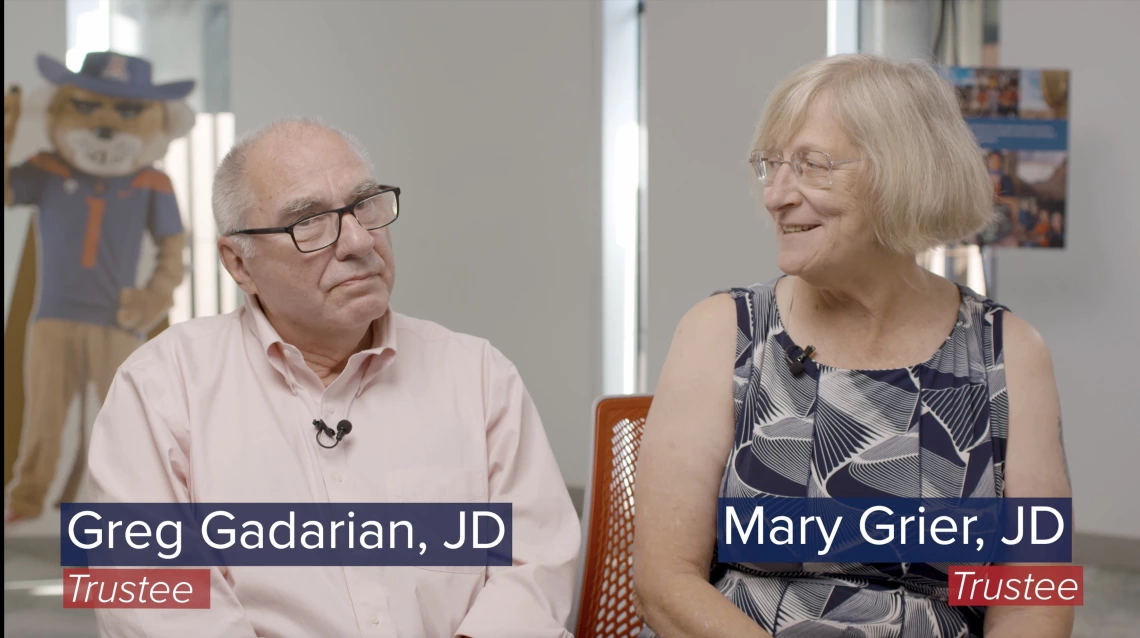Haury Program's Board and Leadership Reflect on the First 10 Years

The Haury Program is honored to release a new video as a part of the series of short videos produced to celebrate their 10th anniversary.
This video features the six members of the Haury Program Donor Advised Fund Board, i.e. Tammy Barnett, Trustee, Mary Grier, Trustee, Greg Gadarian, Trustee, Jonelle Vold, University of Arizona Foundation Member, Elliott Cheu, University of Arizona Member, and Michael McDonald, Community Member, as well as Toni Massaro, Executive Director, and Nancy Petersen, Assistant Director. They reflect on the goals and visions of the program since the time of the establishment, the pivot in 2020, achievements and lessons learned, and share hopes for the future.
The Haury Program was established in 2014 when the University of Arizona Foundation became the recipient of a $50 million bequest from the Estate of philanthropist Agnese Nelms Haury (1923 – 2014) to establish an endowment in support of scientific and cultural studies rooted in social and environmental justice, with a focus on the American Southwest. The bequest, one of the largest in the University's history, founded the Agnese Nelms Haury Program or the “Haury Program” for short. The Haury Program is unique is its structure with a Donor Advised Fund Board, and is a University-based funder, program and people supporter, tribal and community engagement partner, and a cross-University liaison. In 2020, the Haury Program pivoted and refocused on envisioning a world in which tribal resilience, sovereignty, and ways of knowing are respected and advanced to meet adverse weather events challenges through globally impactful University of Arizona collaborations in research, education, and outreach. In order to implement this vision, our Tribal Resilience Initiative work and funding of the Haury Program since 2020 have been centered on 1. funding education, research, and outreach that promote resilience goals of federally-recognized tribes in ways that respect tribal knowledge and sovereignty; 2. supporting and expending educational programs and academic pathways at the University of Arizona for students, faculty and staff that advance tribal resilience, and 3. building and fostering strong, trust-based external partnerships, including working directly with federally-recognized tribes.
The Haury Program wishes to express gratitude to the members of their Board for all of their work, guidance, vision and support. They are also thankful for all the partnerships, including the U of A Foundation and Arizona Institute for Resilience. The videos were shot and produced in cooperation with University of Arizona BioCommunications, and they specifically thank Gilberto Vega for all his work and dedication to help them uplift these impactful voices.
